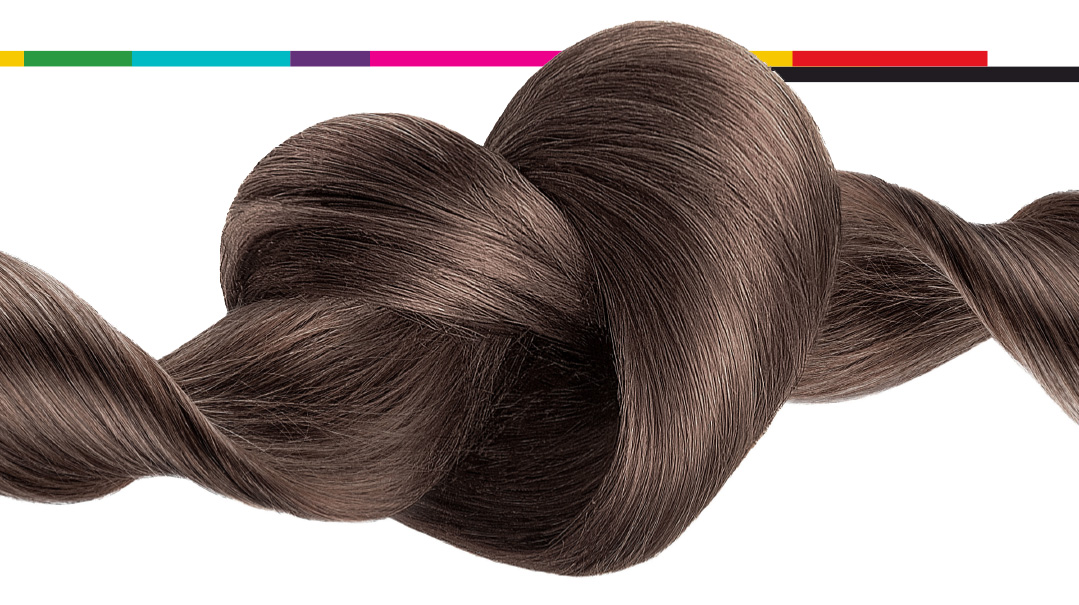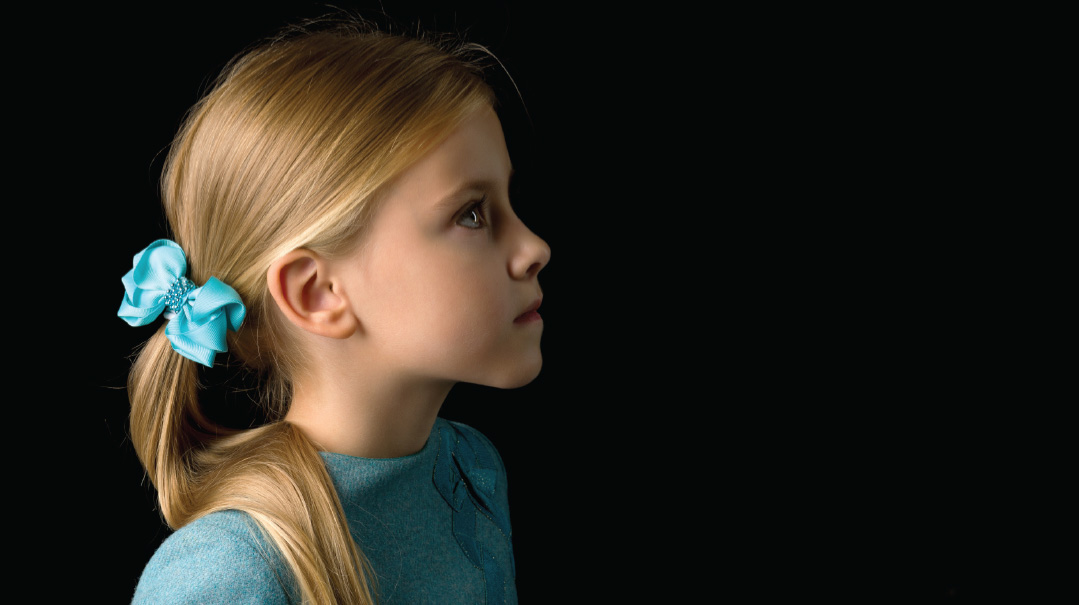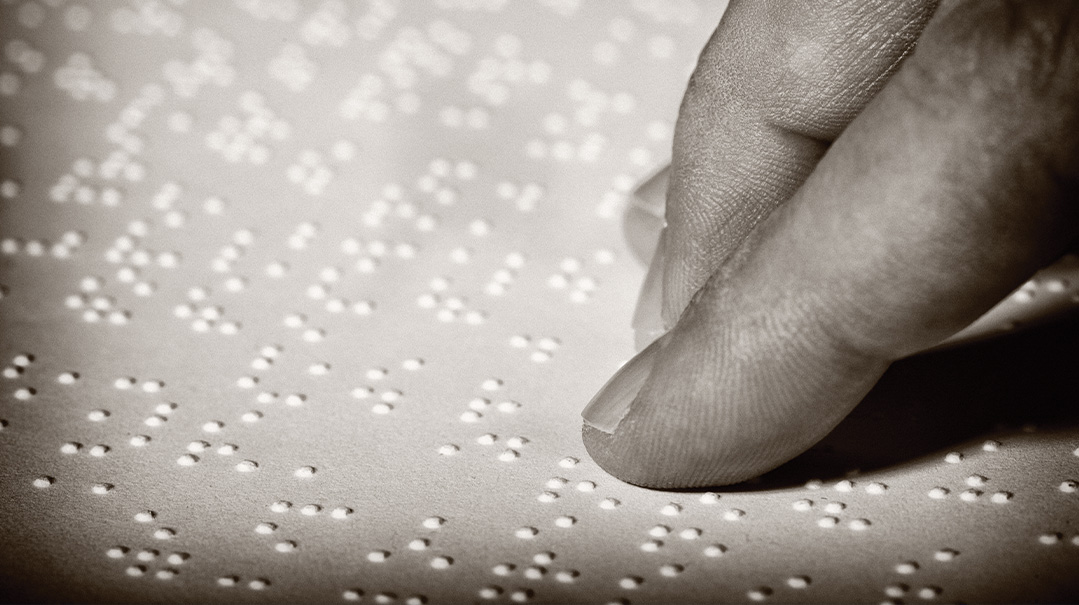Hair Today…

It did help that it had a name, I suppose, so we knew what we were up against. But I still felt pretty miserable

As told to Devorah Grant
IT
started slowly. So slowly that I could almost pretend it wasn’t happening at all, even when my hairbrush was just that little bit too full, and my hair just that little bit too thin. But slow became faster, then faster still, and one evening found me staring in the mirror at a large, round bald spot in the center of my scalp. It was a girl’s worst nightmare; I was losing my hair.
“Alopecia areata,” my doctor said crisply, as I sat trembling in that cold metal chair. A medical skeleton in the corner stared menacingly down at me. “It’s an autoimmune disease attacking Rina’s hair follicles. The hair may or may not grow back.” I looked at Ma with big, glassy eyes, and zoned out as she asked all the questions I couldn’t. Frozen to the spot, I had to be practically pushed out the door. Was this really happening?
It did help that it had a name, I suppose, so we knew what we were up against. But I still felt pretty miserable. Shower nights would find me looking helplessly down as large clumps of black hair gathered in a whirlpool at the drain, then disappeared into the abyss, never to be seen again. At first, going out meant ages in front of the mirror — brushing my hair this way, then that, asking my long-suffering siblings, “Is the spot covered? Now?” But when it became “spots,” in plural, this no longer worked.
I began to hate mirrors with a passion. I cried when I woke up in the morning and found tufts of black hair on my pillow. I patted and stroked them, then threw them away with a vengeance, never knowing what I was angry at — the hair, the disease, my head? People asked my mother and my sisters if I was sick; had I heard of this treatment or that? I threw tantrums at having a nisayon that everyone could see, that did not seem to be going anywhere, despite vitamins and minerals, diets and injections.
Then my mother broached the topic of a wig.
At first, I yelled at her. Yelled and yelled and yelled. No, I did not want a wig, I shouted, I just wanted hair, just normal hair, like everyone else. My yells turned into sobs, and I found myself crying piteously, hating myself for it all the while. There are people who are starving, one part of my brain said, unhelpfully. I don’t care, I just want hair! said the other.
Ma seemed to get it, because she didn’t push. “It’s just hard to watch you suffer, honey,” she whispered. When I was ready, she told me, we would find me a beautiful wig. In a rage, I stormed up to my bedroom, then cried until my pillow was drenched.
Things got worse. I started to find myself obsessed with people’s hair, and would stare unabashedly at every classmate making a pony, each girl with her own signature hairstyle. One school assembly found me sitting directly behind Miri, a petite girl with a beautiful auburn mane, which she flicked, ever-so-casually, behind her as a choking sensation filled my throat. It’s not fair, I would rage, as I walked past hair salons. Why me? I would wonder, as someone with a thick, bushy ponytail would walk past. And what now? said a sensible voice inside me, as my friends tried to placate me that I had a pretty face, and my lack of hair didn’t change who I was. They accepted this, but I couldn’t. As I pulled my extra-wide headband back and forward, I found no peace.
My self-esteem took a dive as I became worse and worse company. Whatever conversation we would have in school would invariably come back to hair at some point, and each time I sulked and walked off, feeling like no one got it and I was all alone. Faigy kept trying to make it better and change the subject when things got bad, but that made me angry, too. I didn’t want to be a nebach case. What I didn’t realize then was how I was making myself one, all the time.
I tried various creams and oils, took all kinds of pills that claimed to help. Each time there was a fleeting hope, as I used the latest “magic potion.” Maybe this would bring my hair back, maybe this would return my life to normal. But each time my hopes were dashed, crashed against the rocks of reality, and even my thick, black eyebrows and eyelashes started to disappear, and the tide frothed with grief. When my head was more bald than not, I swallowed my pride, went to Ma, and told her I wanted a wig.
I never expected to be buying a sheitel at the tender age of 15, but the experience was actually fun, once I got into it. Though I sulked in the car the whole way there, when I arrived in Shari’s salon, I quickly became absorbed in the options, and Ma smiled as I fingered the wigs with excitement.
“We’ll try and find you something reeeeaaalllly natural,” Shari promised, as I held two dark wigs next to my head, trying to imagine what they would look like once cut and styled. “How about this?” Ma suggested, passing me a long, curly fall. “And this!” said Shari, passing me a tousled-looking thing, with blonde highlights. I took them both, tried each, sent pictures to Faigy’s mother so she could show Faigy. One week later, I went back to Shari’s salon, and twirled in front of the mirror in my new wig.
“It’s gorgeous!” breathed Ma, as the soft, dark curls settled back into position. I had to admit, it was. It really was. But I cried anyway.
Going to school in my new wig took more courage than anything I’d ever done before. Ma drove me, so I had some extra time to prepare, but the moment I walked in the door, all eyes were on me. Each hallway hushed as I walked down it, each gaggle of girls turning, as if on cue. “Stay right next to me,” I hissed at Faigy, who came out to greet me. And she did, meriting small black and blue bruises from where I pinched her throughout the day, as each teacher walked in and tried not to do a double take. Hair, I doodled, all the way around my Chumash binder. Hair, hair, hair.
The first few hours of that day were torture, but as time moved on, I began to relax. The wig started to give me a headache around lunchtime, so Faigy and I went somewhere quiet, and I took the itchy thing off, feeling rather self-conscious. “Can I try it?” Faigy asked. “Not yet,” I mumbled. I wasn’t sure I was quite ready for that. When lunch was over, the wig went back on, and I scratched my way through the rest of the afternoon.
People got used to my new look pretty fast, and that helped me adjust. As the wig became less taboo, I bought more clips and bands and started to experiment with my new style. I still felt shy, but was getting braver each day.
School wasn’t the only place I had to deal with prying eyes. I got used to people staring when I walked into shul or the grocery, and after enough weeks of pity parties and tears following thoughtless comments, I firmly told myself that I was just going to have to make the best of it, because Hashem had decided this was good, and I was only making myself more pitiful this way.
Once I made that decision, things were certainly easier, though I’m not sure I’ll ever be completely fine with this illness. The Okayness is kind of an on-off thing — some days it’s there and other days it’s absent. There are moments when alopecia can feel really painful, and honestly, if I could wake up with a full head of hair, I would. Sometimes, though, I get to enjoy some of the perks, like never having to blow my hair, and oily roots being a thing of the past. On those days, this struggle is just a little easier to bear. Oh, and on third-day Yom Tov, I look better than anyone else.
“You know, it’s weird, but I’m kinda getting used to the wig,” I said to Faigy, one Shabbos.
She smiled. “I actually barely notice it anymore.”
I wasn’t sure whether to believe her, but it was nice to hear. I guess my real friends are the ones who like me for me, not for my looks, and they always enjoy helping me style and restyle my wig, keeping it fresh, even when I can’t be bothered.
Alopecia is my challenge, each day that I’m a teenager. I worry about going to new places, and fret often about my future, and shidduchim. At the same time, I’ve seen with my own eyes that people who care don’t mind how I look, and as the words printed on my wig box proclaim, “It’s the inside that shines.” I try to remember that when I look in the mirror. And as I greet a new day and reach for my wig, I try to stand tall and proud, hair or no hair.
(Originally featured in Teen Pages, Issue 907)
Oops! We could not locate your form.







